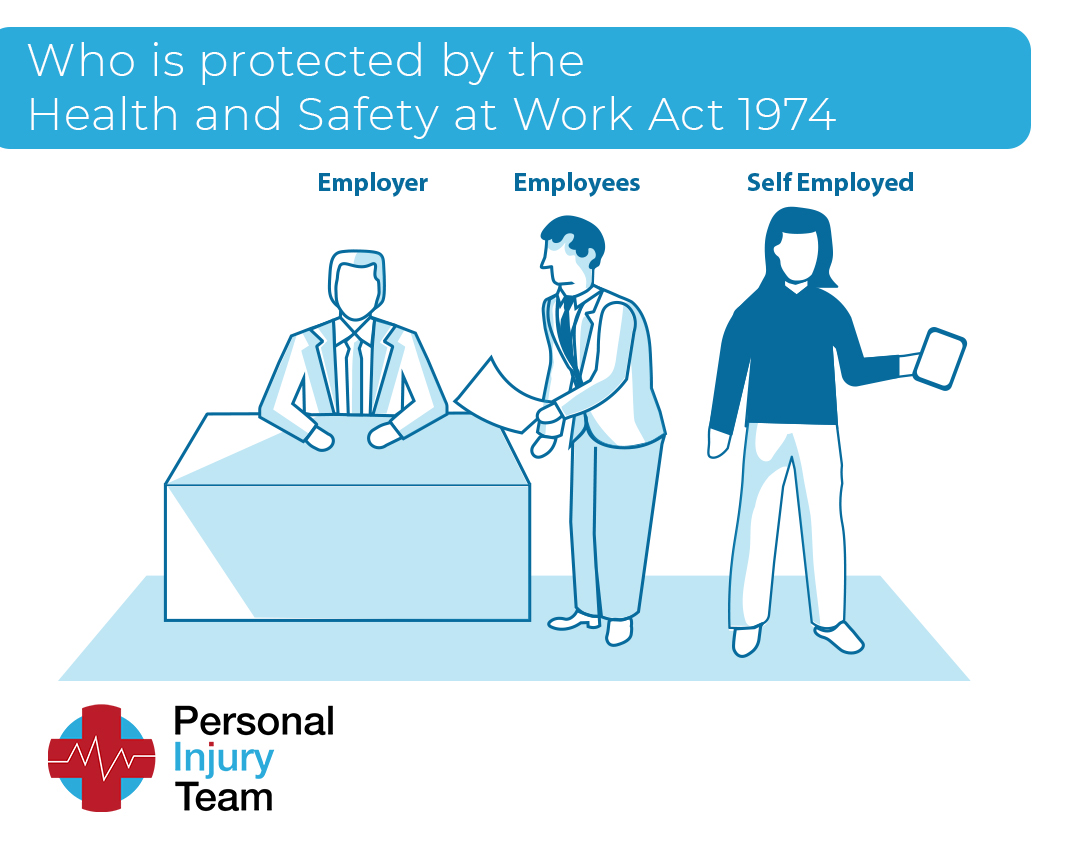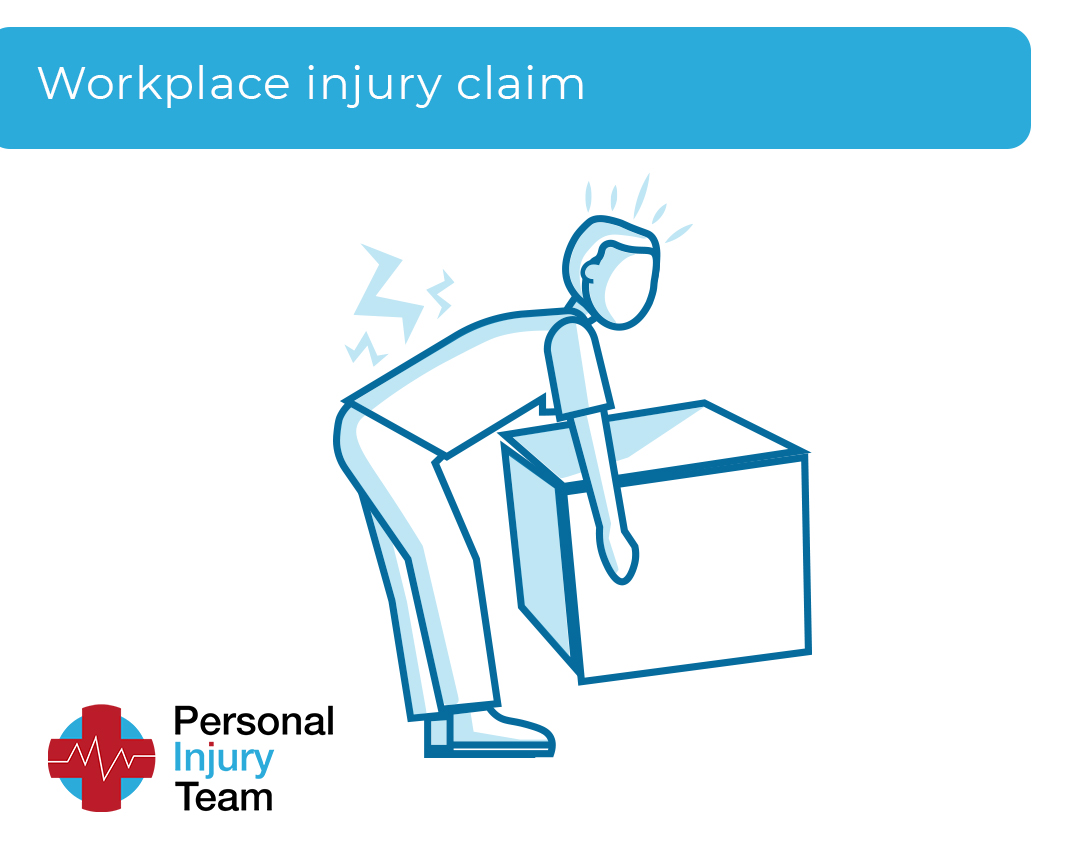The Health and Safety at Work Act 1974 is government legislation to create safe places of work and to ensure the safety of all employees in the workplace. The 1974 Act aims to protect workers by laying out the duties of both employers and employees when in the workplace.
The workplace may be an office, a warehouse, the building site or a restaurant kitchen, but every workplace is covered by the Health and Safety Act 1974. The act covers full-time, part-time, the self-employed, temporary employees and everyone from senior management to new arrivals in the warehouse.
The Health and Safety at Work Act 1974 is also known as the HSWA, the HASAWA, the HSW Act and in some instances simply as the 1974 Act. Your workplace could be in a building, out in the open, or even in a company car, but your employer has a duty of care to you under the act when you are at work.
If the employer breaches their duty of care to you and you suffer a workplace injury, you may have a workplace injury claim. In a workplace injury claim, you seek damages for the effects of the personal injury today and in the future.
A No Win No Fee personal injury solicitor can look at your case and see if you have a valid workplace injury claim under the Health and Safety at Work Act 1974.

Table of Content
What is the Health and Safety at Work Act 1974?
The Health and Safety Act 1974 is to ensure that all employees have a safe place to work and are not put in danger when in the workplace. The act clearly states what an employer should do to create a safe workplace and how employees should behave when at work.
The 1974 Act aims to protect workers from having workplace accidents and suffering injuries. The responsibilities of employers and employees are outlined in the act, so employees know how to behave in the workplace, and employers know how to provide a safe working environment.
The Health and Safety Act 1974 sets out the general duties which:
Duties employers have towards employees and members of the public
Duties employers have towards employees and members of the public range from providing a safe place to work and visit to ensuring regular training to maintaining the premises.
Any employer in a business of any size has a duty to provide a safe workplace for employees and to all visitors to the workplace. A breach of their duty could result in an accident and a personal injury to an employee or visitor.
Some of the duties of employers under the Health and Safety Act 1974 are:
Employees and visitors must be cared for properly in the workplace and have access to first aid, a fully trained employee and to emergency care when needed.
The employee’s duties are to ensure the safety of employees and visitors to the workplace. A breach of the employer’s duties could result in a workplace accident and personal injury compensation claim.
Duties employees have to themselves and to each other in the workplace
Duties employees have to themselves and to each other in the workplace range from respecting fellow employees to carrying out work as trained to not putting themselves, other employees, and visitors at risk.
Employees should know from their training and their understanding of the Health and Safety Act what duties they have when in the workplace. The employer must make the employee aware of their duties before they start work and ensure they receive regular training in Health and Safety.
Some of the duties employees have when in the workplace:
It is the duty of employees to behave in a safe manner towards themselves and others when in the workplace. They should not put others in danger and should alert a supervisor to any breaches of the Health and Safety Act 1974.
If an employer does not follow the Health and Safety Act 1974 and fails to prevent breaches of it by an employee, it could be a breach of their duty of care to employees.
A No Win No Fee personal injury solicitor may make your claim for compensation if you suffer a workplace injury due to a breach of the Health and Safety Act 1974 by an employer.
Duties self-employed workers have in the workplace
Duties self-employed workers have towards themselves and others in the workplace are important when they employ others or go to work in another workplace rather than their own one.
The self-employed are subject to the Health and Safety at Work Act once they enter another workplace. A workplace such as a building site, a farmyard or when doing repairs at a factory are good examples of when the 1974 Act applies to the self-employed.
Self-employed workers have duties in the workplace when:
The self-employed have a duty to themselves and to others when working in a workplace. They must inform any employees fully about the act and always carry out business according to the 1974 Act.
An employer or business owner must ensure the self-employed person is fully trained to be in the workplace and that all their work is carried out according to the Health and Safety Act 1974.
You may have a personal injury compensation claim if you suffer a workplace injury due to a breach of the HSAW Act 1974 by your employer or a self-employed person in the workplace.
Who benefits from the Health and Safety Act?
Anyone who works for a living can benefit from the Health and Safety at Work Act. It is not just the employees who benefit; employers and the self-employed can also benefit from running their businesses according to the act.
The Health and Safety at Work Act of 1974 brought all the guidelines for a safe workplace under a single piece of legislation. There is now a legal obligation on both employers and employees to ensure safe work practices and reduce workplace risk.
Three groups benefit directly from the Health and Safety Act:

Employers benefit as they now know their legal obligations towards staff and have a framework to provide a safe place of business. Employees benefit from their company or employer implementing the HSAW Act by having a safe place to work and by the reduction in risk in their jobs.
Employees also benefit as the act covers how they should behave at work and how they can contribute to a safe workplace. The 1974 Act outlines how employees should have a point of contact to report issues and know that management will deal with their concerns.
The self-employed will also benefit as they can learn from the act how to carry out safe work practices and what is expected of them when working as a contractor in another business. Many self-employed people also employ others and must provide for them under the act.
Employers, employees, and the self-employed have a legal obligation to keep within the Health and Safety Act 1974 and the amendments that have been implemented in the years since.
What Happens if an Employer Breaks the Health and Safety at Work Act 1974?
If an employer breaks the Health and Safety at Work Act 1974, they could be prosecuted in the courts. To break the Health and Safety Act 1974 could be a criminal offence, and employers can go to jail for serious breaches of the 1974 Act.
The employer has a duty of care to provide a safe working environment for all employees and visitors. A breach of their duty of care to employees that leads to a workplace injury could result in a workplace injury compensation claim against them.
The consequences of an employer breaking the Health and Safety Act can be:
Common ways an employer can breach the Health and Safety at Work Act 1974:
Employers in all workplaces are prosecuted for breaches of the Health and Safety at Work Act 1974. Office workers, farm workers, building site workers and those in the factory or warehouse regularly suffer workplace injury due to breaches of the 1974 Act.
Recent figures highlight how often workplace accidents happen in the UK:
If you have a workplace injury, you could have a workplace injury compensation claim.
A No Win No Fee personal injury solicitor can handle your workplace injury claim for compensation.
Find out how much you can claim for a workplace injury
Use our online assessment tool to find out how much you can claim for a workplace injury. The torn ligaments after the fall from a height in the warehouse, the RSI from working at your desk for too long or the back injury from lifting without the correct equipment are all workplace injuries.
The workplace injury may be with you for life, and you may be able to claim compensation for the damages involved and get help dealing with the effects today and in the future.
The Personal Injury Team FREE online assessment tool will put you in direct touch with one of our team, who will give you a full rundown of what can happen with your workplace injury compensation claim.
We can get your workplace injury claim up and running today.
Compensation amounts for a workplace injury claim vary, and expert advice from one of our team members can help you with an idea of compensation for the effects of an injury today and in the future.
Contact your Personal Injury Team today for immediate and expert workplace injury claim advice tailored to you.

